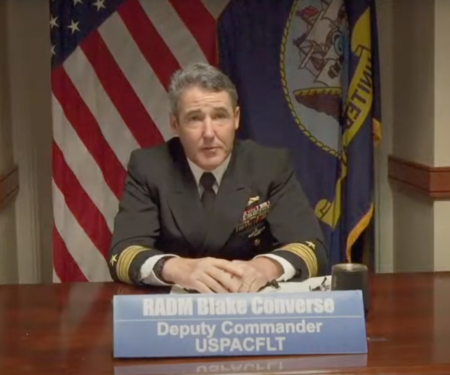Radar Sweep
North Korea Launches 'More Advanced' Missile After Hypersonic Test
North Korea appeared to test-fire a ballistic missile Jan. 11 that may be more advanced than a "hypersonic" one it launched less than a week ago, South Korea's military said, as Pyongyang pursues increasingly powerful weapons.
New in 2022: A Changing Outlook for Air Warfare in US Central Command
The U.S. left two decades of combat in Afghanistan with a last-minute evacuation as the Taliban returned to power in August. Cue the air war’s next phase. Without a ground presence in places such as Afghanistan, Iraq, and parts of Syria, there’s more pressure on the Air Force and Space Force to pivot to a longer-range role with intelligence satellites and drones launched from farther away in the region.
OPINION: Who’s Afraid of an ICBM Review?
“The Pentagon’s grant of $75,000 to the Carnegie Endowment for International Peace for a study of options for the land-based leg of the nuclear triad has prompted howls of protest from boosters of the Pentagon’s plan to build a new ICBM, known formally as the Ground-Based [Strategic] Deterrent, or GBSD. Sen. James Inhofe (R-Okla.) and Rep. Mike Rogers (R-Ala.), ranking Republicans on the Senate and House armed services committees, have argued that the issue has already been well studied and that the Carnegie effort should be canceled. Why the uproar? Isn’t it worth spending $75,000 to assess whether to go ahead with a program that could cost $264 billion over its lifetime, including $110 billion for development and procurement?” writes William D. Hartung, senior research fellow at the Quincy Institute for Responsible Statecraft and the author of "Prophets of War: Lockheed Martin and the Making of the Military Industrial Complex."
Missile Warning & Defense
Defending against missile threats launched in, at, or through space has never been more challenging—or important. Learn more on Air Force Magazine’s Missile Warning & Defense page.
Who’s in Charge of US Space Policy?
Under the Trump administration, it was self-professed space nerd Vice President Mike Pence who chaired the National Space Council. But, even though Vice President Kamala Harris has held her first space council meeting and chatted with astronauts on the International Space Station, space consistently falls much lower on her robust to-do list. Space professionals increasingly feel that the White House’s National Space Council is playing less of a role in setting military space policy and that those duties are being handled by the National Security Council, according to six industry executives, four of whom previously served as senior government officials in Democratic and Republican administrations.
Inspector General Criticizes Documentation on Pentagon’s Artificial Intelligence Project
The Pentagon did not adequately document work on its flagship artificial intelligence effort, according to a government watchdog report, increasing the risks of lapses in the future.
Astroscale Looks to Orbit Fab Space ‘Gas Stations’ to Extend Mission Life
The U.S. arm of Japanese firm Astroscale has inked a deal to be the first customer in line to refuel at San Francisco startup Orbit Fab’s planned “gas stations” in geosynchronous orbit (GEO). Meanwhile, the firm is gearing up its own pitch to the Space Force’s SpaceWERX innovation hub for cleaning up space junk.
The Biden Nuclear Posture Review: Resetting the Requirements for Nuclear Deterrence
As the Biden administration finalizes its Nuclear Posture Review (NPR), it faces the same challenges as the architects of the four earlier NPRs: how to make choices about nuclear deterrence and translate them into nuclear strategy and force structure. If it chooses to learn from the experience of its predecessors, the administration will confront two sets of requirements that are central to U.S. nuclear deterrence policy yet limit its freedom of action. The NPR managers would be wise not to just buy into those requirements but instead to be explicit and transparent about questioning them in order to enable choices that are based on a clear understanding of the trade-offs as well as other possible options.
How Do Extremists Get Into the Military? The Pentagon Wants to Find Out
The Department of Defense Office of the Inspector General is launching a review of how extremists and criminal gang members are joining the military. “The objective of this audit is to determine whether Military Service recruiting organizations screened applicants for supremacist, extremist, and criminal gang behavior according to DoD and Military Service policies and procedures,” reads the Jan. 3 memorandum from the inspector general’s office.
Norway is Making Troops Turn in Their Used Underwear to Give to New Recruits
Supply chains and equipment turn-in have traditionally provided no shortage of consternation to service members. It’s not usually this personal, though. Military conscripts in Norway are now being asked to return all issued clothing items, including things such as socks, bras, and underwear, at the end of their mandatory service so that the items can be re-issued to the next generation of recruits.




